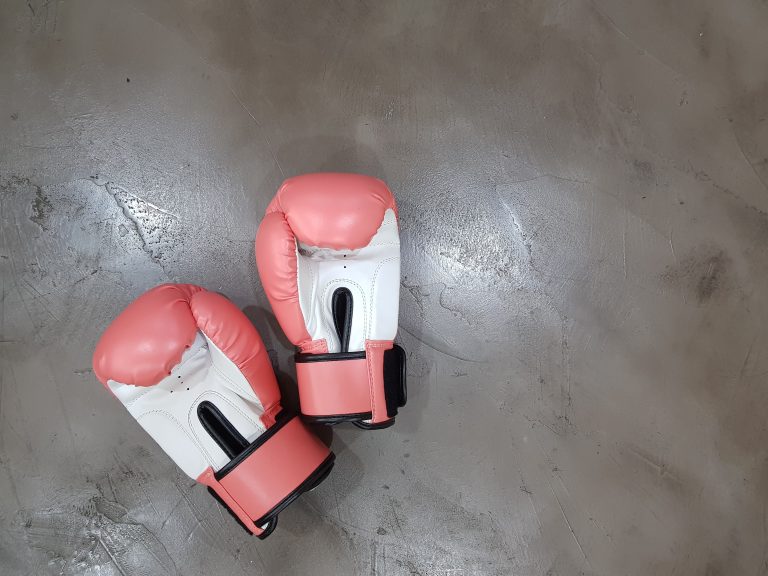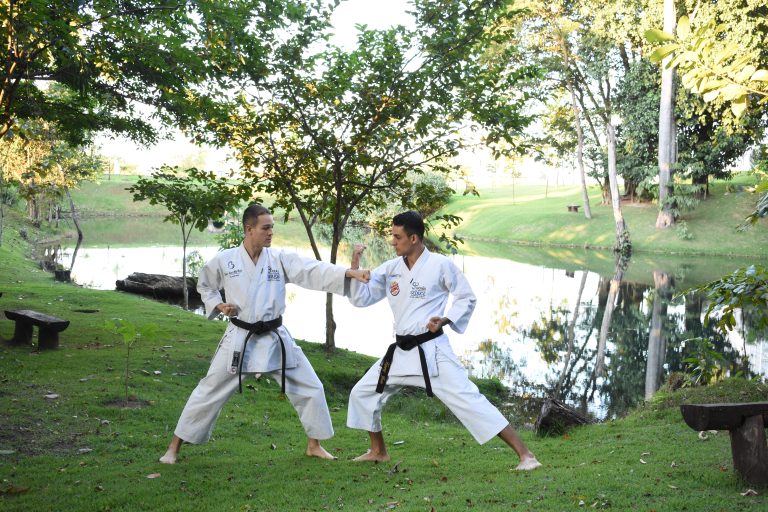Can Anyone Learn Karate?
Karate is a popular martial art that originated in Okinawa, Japan, and has since spread throughout the world. Many people wonder if anyone can learn karate or if it’s only for certain individuals. The truth is that karate is suitable for people of all ages, genders, and physical abilities. In this blog post, we will explore how anyone can learn karate.
What is Karate?
Karate is a martial art that combines striking techniques with defensive techniques. It involves the use of the entire body to execute powerful strikes and moves, such as punches, kicks, knee strikes, and elbow strikes, as well as blocks, evasions, and throws. Karate also emphasizes the development of the mind and spirit, as well as self-defense and fitness.
Is Karate Suitable for Everyone?
Yes, karate is suitable for everyone. No matter what age, gender, or physical ability you have, karate can be adapted to suit your needs. In fact, some karate clubs offer special classes for children, seniors, and people with disabilities. The key is to find a karate school or instructor that can accommodate your needs and abilities.
Benefits of Learning Karate
Learning karate comes with a host of benefits, including physical, mental, and social benefits. Here are some of the benefits of learning karate:
Physical Benefits:
– Increased strength and flexibility
– Improved balance and coordination
– Increased cardiovascular endurance
– Weight loss and management
Mental Benefits:
– Improved focus, concentration, and memory
– Increased self-confidence and self-esteem
– Reduced stress and anxiety
– Improved discipline, patience, and determination
Social Benefits:
– Opportunity to make new friends and connect with like-minded individuals
– Sense of community and support
– Opportunities for competition and achievement
– Increased awareness and respect for different cultures
How to Start Learning Karate
Starting to learn karate is easy. The first step is to find a reputable karate school or instructor near you. You can search online or ask for recommendations from friends or family members. Once you’ve found a school or instructor, contact them to inquire about class schedules, fees, and any other requirements.
When you start learning karate, you’ll be introduced to the basic techniques and forms. You’ll also learn about the history and philosophy of karate. It’s essential to have an open mind and a willingness to learn and practice regularly. Karate is a journey, and it takes time and effort to progress.
Can Anyone Learn Karate?
If you are considering taking up karate, it’s natural to wonder if anyone can learn it. Perhaps you don’t have a sports background, and you are concerned that you don’t have the necessary skill set to take up karate. Or maybe you have a health condition that makes you unsure if you can physically participate in martial arts. In this blog post, we will answer some of the most frequently asked questions to help you determine if karate is for you.
What is Karate?
Karate is a form of martial arts that originated in Japan. It is characterized by kicking, punching, and striking techniques, as well as open-handed techniques. Karate is a physical and mental discipline that is meant to enhance not only combat skills but also to improve a person’s overall well-being.
Is Karate Suitable for Everyone?
Yes, anyone can learn karate, regardless of their gender, age, fitness level, or physical capabilities. It is important to note that karate can be a dynamic and physically demanding activity, so it is essential that you consult your doctor before starting classes if you have any health conditions or concerns.
Karate classes are typically divided into groups based on skill level, age, and physical capacity to ensure that everyone receives training that is suitable for them. This way, everyone can progress at their own pace and still gain the benefits of practicing karate.
Is it Necessary to Have Prior Experience to Learn Karate?
No, it’s not necessary to have prior experience to learn karate. Beginner classes are designed to teach the basics of correct body positioning, balance, and movement, and ongoing classes will build upon those fundamentals.
Instructors will help guide you through every step of the way and motivate you to reach your full potential.
What are the Physical Benefits of Karate?
Karate offers numerous physical benefits, including increased flexibility, coordination, strength, and cardiovascular endurance. Regular practice of karate can also help to improve overall body composition, agility, and speed.
What are the Mental Benefits of Karate?
In addition to physical benefits, karate provides an extraordinary range of mental benefits. The focus, discipline, and determination required for karate training can help to reduce stress and anxiety levels, and increase confidence and self-esteem. Karate training also encourages a spirit of respect for oneself and others, which translates to improved personal relationships.
What is the Time Commitment Required for Learning Karate?
The time commitment required for karate practice varies based on how often you attend classes, how much practice you do at home, and your goals.
Most karate schools offer classes several times per week, which can range from 30 minutes to an hour or more. It is recommended that you practice karate between classes to improve your technique and retain what you have learned.
Ultimately, how much time you devote to karate will depend on you, but it is recommended that you attend class regularly and practice consistently for best results.
Can Anyone Learn Karate?
Introduction
Karate is a martial art that originated in Japan and is now practiced all around the world. It is a form of self-defense that requires strength, balance, and flexibility. Many people are interested in learning karate, but they often wonder if it is something that they can do. The good news is that anyone can learn karate, regardless of their age, fitness level, or experience. In this how-to guide, we will show you how to get started with learning karate, what you can expect in your first class, and how to progress through the ranks.
Step 1: Find a Karate School
The first step in learning karate is to find a school in your area. Look online, ask friends and family members, or check with your local YMCA or community center. When looking for a school, look for one that is reputable and has experienced instructors. It is also important to find a school that focuses on your goals – whether that’s fitness, self-defense, or competition.
Step 2: Attend Your First Class
Once you have found a karate school, it’s time to attend your first class. If you have never done karate before, don’t worry – everyone starts as a beginner. You should wear comfortable clothing that allows for easy movement, such as a t-shirt and sweatpants. Many schools also require that you wear a gi (karate uniform) after your first few classes. Before you begin, make sure to introduce yourself to the instructor and let them know that you are new to karate.
Step 3: Learn the Basics
In your first few classes, you will learn the basics of karate. This will include learning basic techniques such as punches, kicks, and blocks. You will also learn stances, which are the fundamental positions used in karate. It’s important to remember that it takes time to learn these techniques properly, so don’t be too hard on yourself if you don’t get it right away. With practice and dedication, you will improve.
Step 4: Set Goals
As you progress through your karate journey, it’s important to set goals for yourself. This could be something as simple as learning a new technique or as complex as reaching a certain rank. Setting goals helps keep you motivated and gives you something to work towards. Make sure to talk to your instructor about your goals so that they can help you achieve them.
Step 5: Practice Consistently
One of the most important parts of learning karate is practicing consistently. This means attending classes regularly and practicing on your own outside of class. It’s also important to practice the techniques correctly, so make sure to ask your instructor for feedback and corrections. Consistent practice will help you build strength, endurance, and flexibility.
Step 6: Test for Ranks
As you progress through your training, you will have the opportunity to test for different ranks. Each rank requires you to learn new techniques and demonstrate proficiency in your current techniques. Testing for a new rank is a great way to challenge yourself and see how far you have come. Make sure to talk to your instructor about the testing process and what is required for each rank.
Conclusion
In conclusion, anyone can learn karate with the right mindset and dedication. With these simple steps, you can get started on your karate journey today. Remember to find a reputable school, attend your first class, learn the basics, set goals, practice consistently, and test for ranks. With hard work and perseverance, you can become a skilled karateka and enjoy all the benefits that come with learning this ancient martial art.
Inhaltsverzeichnis





